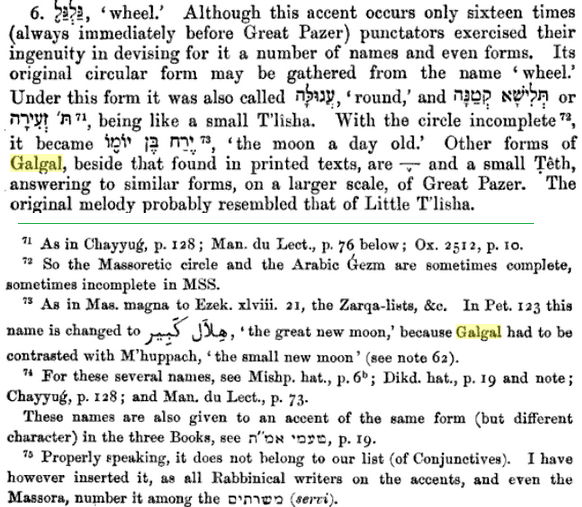A while back, people were discussing a study which concluded that conservatives and liberals viewed the world in different ways*. Roughly, liberals think in terms of fairness while conservatives think in terms of morality. And, as Scott Adams suggested, that might be one reason one side cannot persuade the other -- they are speaking different languages, and what one side would consider a strong argument, the other would consider irrelevant.
Fairness and equality, as opposed to adherence to God-given rules, seems a recurring theme in Chumash Bemidbar. We have three separate instances in which the rules were set up, ordained by God, but in which some people, through no fault of their own, end up in an unequal situation. And in each instance, they complain to Moshe with למה נגרע, "Why should we be worse off?"
1) For Korban Pesach, people with ritual impurity contracted from a corpse may not eat of it. That is the Divine rule that applies equally to all people, that ritual impurity invalidates people from partaking in a korban in general. And some years, people miss out, and other years, they may partake. But the impure complain that it isn't fair to them, because they get left out. As they said in Bemidbar 9:7, lama nigara:
2) The inheritance of Israel is based on males. The daughters of Tzelophchad complain that, because their father died in his own sin and only had daughters, they have been left out, and their father has no share in the land. Their situation wasn't the origin intent of the Divine decree, but it has that unfortunate effect. It is not fair. As they say, in Bemidbar 27:4, lama yigara:
Rather than dismiss their claim, he tells them to wait while he asks God directly. And he gets a revision, that in such a case, the daughters will inherit.
3) Even revisions can have unintended effects. The tribe of Menasheh complains that when the daughters of Tzelophchad marry, they will take their inheritance with them to another tribe, and so Menasheh's portion will shrink. That is not fair. As they say, in Bemidbar 36:3, venigraah:
Is such a situation sustainable? Any time someone is adversely affected by the law, should they complain and the law will be revised? Maybe that was the intent, if we understand going to the shofet in a given era in that light. But having the law in such a constant state of flux does not seem sustainable to me. Eventually, the law is the law, and some people fall through the cracks, and it isn't fair.
-------------
* I would treat all such studies with skepticism, because I think that the researchers' political views will influence the design of the study or the interpretation of the results.
Fairness and equality, as opposed to adherence to God-given rules, seems a recurring theme in Chumash Bemidbar. We have three separate instances in which the rules were set up, ordained by God, but in which some people, through no fault of their own, end up in an unequal situation. And in each instance, they complain to Moshe with למה נגרע, "Why should we be worse off?"
1) For Korban Pesach, people with ritual impurity contracted from a corpse may not eat of it. That is the Divine rule that applies equally to all people, that ritual impurity invalidates people from partaking in a korban in general. And some years, people miss out, and other years, they may partake. But the impure complain that it isn't fair to them, because they get left out. As they said in Bemidbar 9:7, lama nigara:
- פסוק ז: וַיֹּאמְרוּ הָאֲנָשִׁים הָהֵמָּה, אֵלָיו, אֲנַחְנוּ טְמֵאִים, לְנֶפֶשׁ אָדָם; לָמָּה נִגָּרַע, לְבִלְתִּי הַקְרִיב אֶת-קָרְבַּן יְהוָה בְּמֹעֲדוֹ, בְּתוֹךְ, בְּנֵי יִשְׂרָאֵל.
2) The inheritance of Israel is based on males. The daughters of Tzelophchad complain that, because their father died in his own sin and only had daughters, they have been left out, and their father has no share in the land. Their situation wasn't the origin intent of the Divine decree, but it has that unfortunate effect. It is not fair. As they say, in Bemidbar 27:4, lama yigara:
- פסוק ד: לָמָּה יִגָּרַע שֵׁם-אָבִינוּ מִתּוֹךְ מִשְׁפַּחְתּוֹ, כִּי אֵין לוֹ בֵּן; תְּנָה-לָּנוּ אֲחֻזָּה, בְּתוֹךְ אֲחֵי אָבִינוּ.
Rather than dismiss their claim, he tells them to wait while he asks God directly. And he gets a revision, that in such a case, the daughters will inherit.
3) Even revisions can have unintended effects. The tribe of Menasheh complains that when the daughters of Tzelophchad marry, they will take their inheritance with them to another tribe, and so Menasheh's portion will shrink. That is not fair. As they say, in Bemidbar 36:3, venigraah:
במדבר פרק לו
- פסוק ג: וְהָיוּ לְאֶחָד מִבְּנֵי שִׁבְטֵי בְנֵי-יִשְׂרָאֵל, לְנָשִׁים, וְנִגְרְעָה נַחֲלָתָן מִנַּחֲלַת אֲבֹתֵינוּ, וְנוֹסַף עַל נַחֲלַת הַמַּטֶּה אֲשֶׁר תִּהְיֶינָה לָהֶם; וּמִגֹּרַל נַחֲלָתֵנוּ, יִגָּרֵעַ.
Is such a situation sustainable? Any time someone is adversely affected by the law, should they complain and the law will be revised? Maybe that was the intent, if we understand going to the shofet in a given era in that light. But having the law in such a constant state of flux does not seem sustainable to me. Eventually, the law is the law, and some people fall through the cracks, and it isn't fair.
-------------
* I would treat all such studies with skepticism, because I think that the researchers' political views will influence the design of the study or the interpretation of the results.







